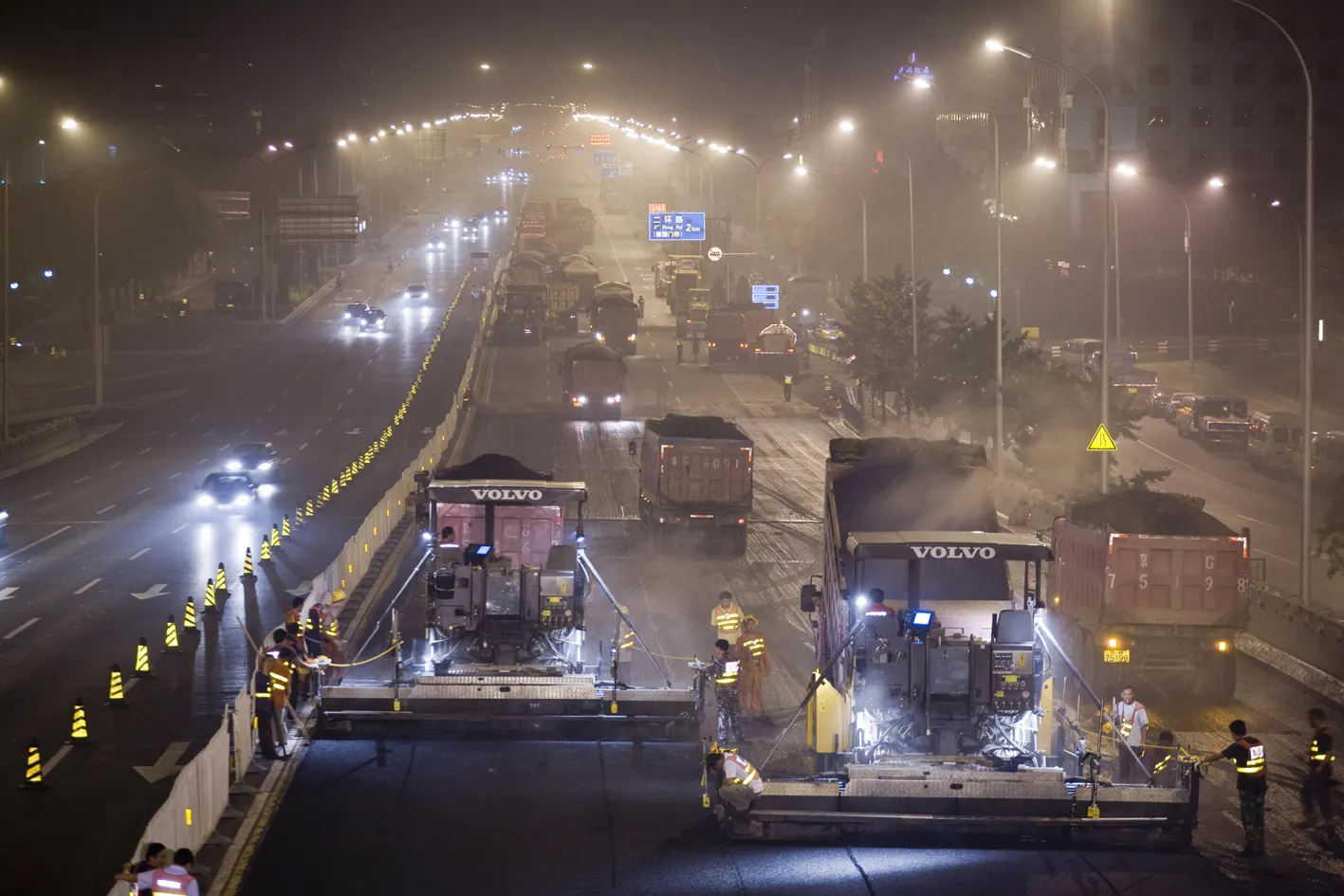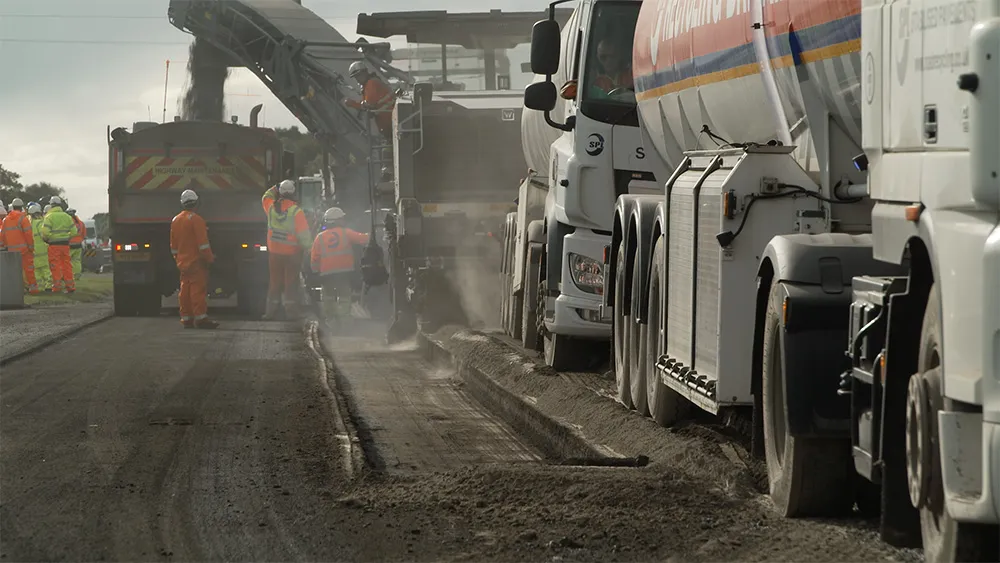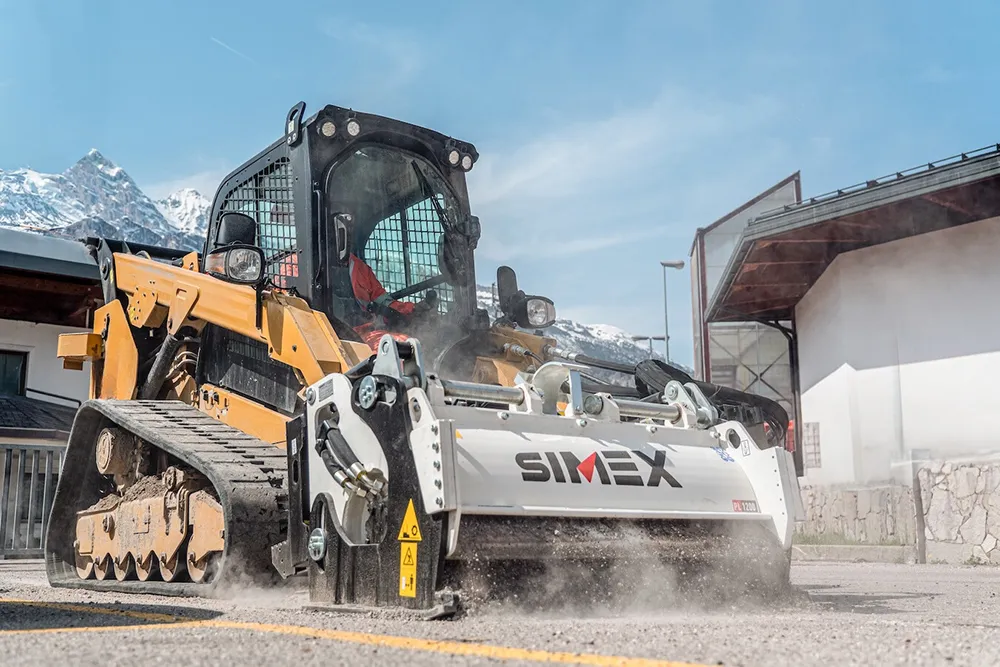Recycling with foamed bitumen is being used for lane reconstruction on the SP11 road in Italy, where contractor F.lli Lepri is carrying out work on a 14km section. The SP11 is an important link forming part of the Colline per Legoli Highway connecting the SS67 Tosco-Romagnola Highway near Pontedera with the southeast region of Pisa Province up to the borders of Florence Province.
February 29, 2012
Read time: 3 mins
Recycling with foamed bitumen is being used for lane reconstruction on the SP11 road in Italy, where contractor F.lli Lepri is carrying out work on a 14km section.
The SP11 is an important link forming part of the Colline per Legoli Highway connecting the SS67 Tosco-Romagnola Highway near Pontedera with the southeast region of Pisa Province up to the borders of Florence Province.
The contractor is using a technique that meets Italian standards to client Pisa Province’s specification. The aim of the work is to improve the surface quality by repairing damage to the existing road.
Cold recycling has been used with foamed bitumen on sections with clearly identifiable damage and cracks in the surface, to produce a road surface 200mm thick. This features an 80mm asphalt binder layer and a 40mm asphalt wearing course. Cold recycling has been used to a depth of 100mm on those sections with less damage.
The cold planer makes an additional pass while any additional material, additives and foamed bitumen is sprayed into the mixing drum. Micro-processor controls ensure optimum metering of the sprayed additive when mixing with the pulverised material.
The processed material laid behind the machine is pre-compacted by a heavy screed and is followed by profiling with a grader and further compaction. By adding foamed bitumen, mixed material made from different natural additives or asphalt granulates can be turned into high-quality roads.
172 Bomag has developed the MPH125 recycling unit in collaboration with contractors and says that the machine is efficient and reliable and offers high performance for mixing lime, fly ash and cement for soil stabilisation. For cold planing, the unit can be used in multiple applications to pulverise old and damaged roads to stabilise the road.
The speed of the rotor is adjustable to match the job while the mixing drum adapts automatically to milling depth, the type of soil and materials used. Binder and soil can be processed to form a uniform mix with minimal wear and optimised energy consumption.
A high quality mix is created from the recycled materials when combined with water and binding agents and the new asphalt binder layer features good mechanical properties while the road's bearing capacity is improved, so there is no need to use reinforced structures. The uniform single-layer binder courses contain no weak points and there is less stress on the sub-base.
A recycling train can work in a single lane so that reconstruction can be carried out on half the carriageway and the entire road can be opened up again for traffic at the end of the shift.
A BOMAG Terrameter can carry out tests during cold recycling while work is ongoing. This unit automatically tests the bearing capacity of the asphalt layer during compaction, after which dynamic plate tests are applied.
Cold recycling can offer fast road repairs and as long as processes are adhered to, the technique offers a road repair with good mechanical properties and a long projected working life.
The SP11 is an important link forming part of the Colline per Legoli Highway connecting the SS67 Tosco-Romagnola Highway near Pontedera with the southeast region of Pisa Province up to the borders of Florence Province.
The contractor is using a technique that meets Italian standards to client Pisa Province’s specification. The aim of the work is to improve the surface quality by repairing damage to the existing road.
Cold recycling has been used with foamed bitumen on sections with clearly identifiable damage and cracks in the surface, to produce a road surface 200mm thick. This features an 80mm asphalt binder layer and a 40mm asphalt wearing course. Cold recycling has been used to a depth of 100mm on those sections with less damage.
The cold planer makes an additional pass while any additional material, additives and foamed bitumen is sprayed into the mixing drum. Micro-processor controls ensure optimum metering of the sprayed additive when mixing with the pulverised material.
The processed material laid behind the machine is pre-compacted by a heavy screed and is followed by profiling with a grader and further compaction. By adding foamed bitumen, mixed material made from different natural additives or asphalt granulates can be turned into high-quality roads.
The speed of the rotor is adjustable to match the job while the mixing drum adapts automatically to milling depth, the type of soil and materials used. Binder and soil can be processed to form a uniform mix with minimal wear and optimised energy consumption.
A high quality mix is created from the recycled materials when combined with water and binding agents and the new asphalt binder layer features good mechanical properties while the road's bearing capacity is improved, so there is no need to use reinforced structures. The uniform single-layer binder courses contain no weak points and there is less stress on the sub-base.
A recycling train can work in a single lane so that reconstruction can be carried out on half the carriageway and the entire road can be opened up again for traffic at the end of the shift.
A BOMAG Terrameter can carry out tests during cold recycling while work is ongoing. This unit automatically tests the bearing capacity of the asphalt layer during compaction, after which dynamic plate tests are applied.
Cold recycling can offer fast road repairs and as long as processes are adhered to, the technique offers a road repair with good mechanical properties and a long projected working life.








